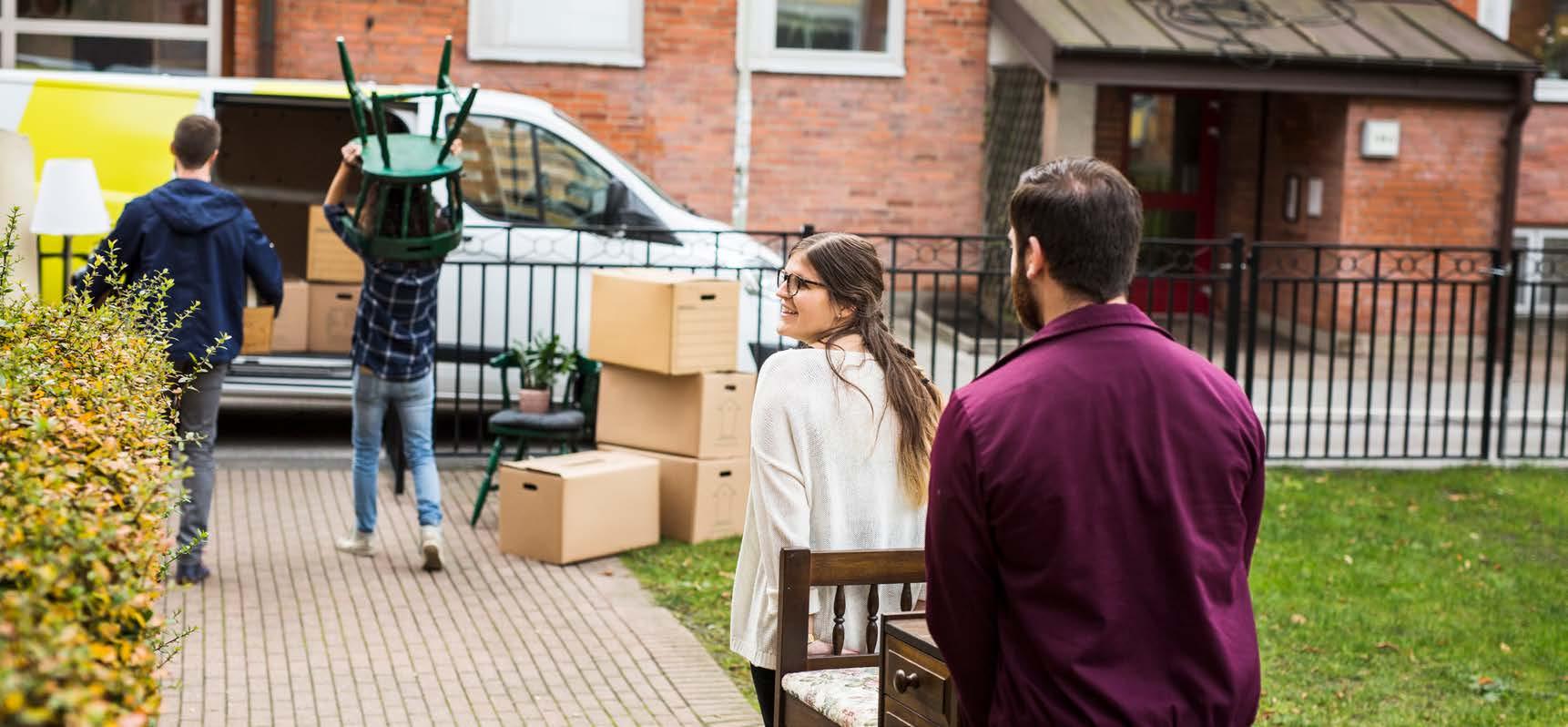
5 minute read
An Opportunity for this Generation to Remake the World Insights from the Loeb Center for Career Exploration and Planning
An Opportunity for This Generation to Remake BY EMILY GRIFFEN the World Like everyone, we had no idea we were soon to step into a once-in-many-lifetimes event, where our assumptions about our work and the future would be tossed aside overnight. A Insights from the few months later my team and I were gathering again — this time in our conference room as we made emergency plans Loeb Center for to shift all our operations to a remote work environment. In the spring of 2021, those of us who work in collegiate Career Exploration career services continue to grapple with the ramifications of the global pandemic. We attend to our own children’s and Planning remote schooling while logging in to Zoom to advise your children on how to adapt to a world we struggle to analyze. We watch layoffs and furloughs happen in our own industry while worrying about the cautious planning of our employer partners and a far more competitive jobs landscape for our students. But we also see bright areas of promise — and are challenging ourselves to reimagine our very profession. While analyzing the external job market has been a priority, career services professionals have also been rethinking how we engage with students in advising conversations and programs. At my institution, advisors have had ongoing discussions with each other and with colleagues at other schools about how best to support students and help them meet this moment with resilience, creativity and hope. What we’ve discovered is that our best advice is evergreen. Bedrock career management skills matter today more than ever for young professionals.
In December 2019, the career services team I lead at Amherst College was hunkered down for a retreat in a hotel ballroom. As we reflected on the previous year and planned for 2020, a graphic facilitator listened intently, creating murals to reflect and document our discussion.
Building relationships, for example, has proven again and again to be the most important lever in any job search.
In the current climate, investing in outreach and conversation is also the best way to gain insight into real-time trends and opportunities in rapidly changing fields. Similarly, it’s always been true that investing in a broad skill set and versatility is a surer path to sustained success than a narrower, calculated approach to current job opportunities.
Today, as we watch entire industries shift overnight, it reminds us to widen our aperture in advising conversations to include longer term and expansive thinking. And as we help our high-achieving students process and adapt to setbacks, we recognize that we should have spent more time talking candidly with them about learning from disappointment and failure — crucial adult experiences — all along.
The skills more broadly nurtured by a college education also matter today more than ever.
No longer is “critical thinking” a slightly abstract phrase for us or for our student advisees. Now we can feel in our bones how critical thinking not only helps organizations succeed but ensures our democracy survives.
Similarly, have we ever had more meaningful examples available to us about the importance of creative problem solving, analysis, research skills, clear communication, or teamwork? What have long been referred to (in a tone I always found semi-disparaging) as “soft skills” are the secret sauce to professional effectiveness and career advancement.
Again, none of this is new. In a January 2020 survey by the National Association of Colleges and Employers (NACE), employers noted the following as the top five skills they seek when hiring undergraduates: 1) problem-solving skills, 2) ability to work in a team, 3) strong work ethic, 4) analytical/quantitative skills, and 5) written communication skills. Technical skills came in at #10 on the wish list.
What is the world of work now?
As Aisha Ahmad eloquently stated last spring in the Chronicle of Higher Education, “the world is our work.” * What would it look like if we more often remembered that the post-graduate transition into the professional world was not the end goal in itself but the means to a greater end? Or the means to a greater beginning?
An exhilarating number of today’s students are motivated — perhaps more than the last few generations that have preceded them — to solve the massive problems before us. Problems like racial injustice, climate change and public health demand multi-sector, interdisciplinary responses from every nook and cranny of our economy.
Climate action, for example, requires people who make new technologies, people who manage regulations on a municipal level, people who synthesize information and influence public opinion, people who use the arts to reflect our world back to us and give us shared cultural experiences, and people who lead teams and make courageous decisions. With that range of opportunity, no matter what students’ skills or interests or majors are, there is space for them to develop their unique capacities and make choices that set us on a new path.
My advice to you is to encourage your students to spend more energy leaning in to their natural strengths and interests and less time calculating where the top salaries are (or where they perceive their peers to be going). It is when our true abilities and values are activated that we are our most productive selves and new ideas emerge — and we need new ideas for a more humane world.
It is very American to encourage our children to dream bigger and believe that anything is possible.
But often that message is about individual potential. This generation has an opportunity and an urgency to reconsider career planning as a more collectivist endeavor.
With a reorientation toward solving big problems or generating new global approaches, career conversations must also be a shared project on college campuses and not simply delegated to career centers. We must provide opportunities for students to apply skills learned in the classroom in diverse ways, and create environments that encourage them to develop and test new ideas.
Educators and families share the most important project: believing in our students. Together let’s hold onto optimism; model listening, respect and generosity; and attend to our own physical and mental health every day. Then we’ll be able to buoy and sustain them as they do the hard work of creating a stronger future.
I took a moment recently to pull up the PDF file of those murals created during the 2019 staff retreat. It was like digging up a time capsule. I scrolled to the last image, the one that documented our hopes for our continued evolution. The artist had grouped ideas around stylized orange and red plants, which she illustrated with uplifted leaves and flowers that looked like suns. For the first time, I noticed the care she’d taken to place those plants in a bed of soil — using her markers to create an intricate pattern of little cross hatches, like planting seeds.
*Ahmad, Aisha S. “Why You Should Ignore All That Coronavirus-Inspired Productivity Pressure.” The Chronicle of Higher Education, 26 March 2020, www.chronicle.com/article/why-you-should-ignore-all-that-coronavirusinspired-productivity-pressure. Accessed 4 Feb. 2021.










